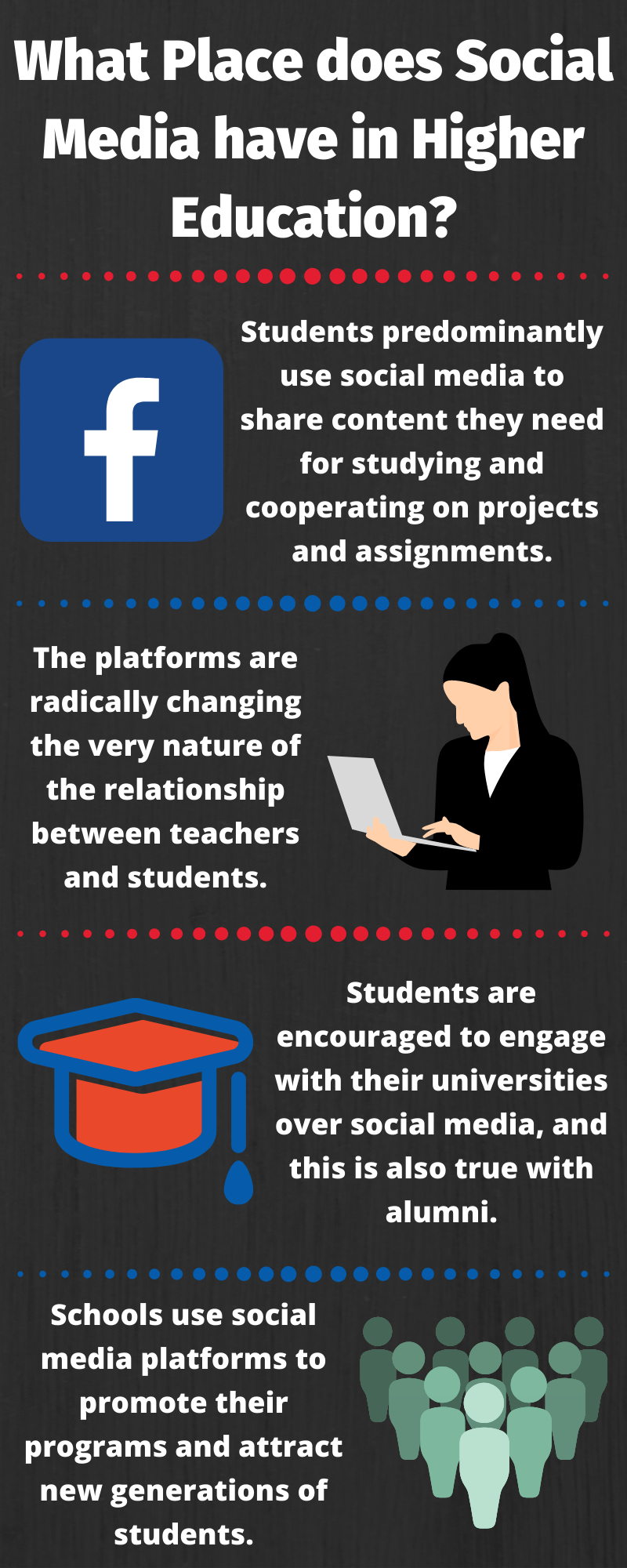As we have all been well aware for quite some time, social media is everywhere. It has essentially penetrated every corner of our lives, and it has reached all types of organizations.
The same thing can be said about higher education. It could even be argued that social media plays a huge role in higher education. Naturally, it’s easy to assume this as younger generations are more adept at using social media, and their daily internet lives are more and more revolving around social platforms.
However, all of that is usually based on speculation, and we wanted to dig deeper to show what place social media has in higher education.
How Is Social Media Used in Higher Education?
Both students and teachers know that social media has been making their lives easier in many respects. However, you are probably unfamiliar with all of the ways higher education institutions and its members are using these popular platforms.
For starters, students predominantly use social media to share content they need for studying and cooperating on projects and assignments. Facebook groups are, for example, largely popular among students across the globe. They are convenient for organization, cooperation, discussion, and more. Any student can type a question in the group and get quick replies from a large number of students. In essence, this allows for all students to stay in the loop and be able to finish their studies with greater ease and less time spent on trivial matters.
Social media is used for learning and teaching in a wide variety of ways:
- Developing writing skills
- Language learning
- Teacher-student discussions outside of the classroom
- Both synchronous an asynchronous communication with the help of forums, emails, and instant messaging services
- Community building
Also, we shouldn’t underestimate the benefit social media has as a curricular tool. The platforms are radically changing the very nature of the relationship between teachers and students.
In the end, we cannot forget how higher education institutions are recognizing the importance social media has in the lives of students and younger generations. As businesses have learned already, education institutions have done the same and are using the benefits of social media marketing to their advantage:
- Students are encouraged to engage with their universities over social media, and this is also true with alumni. Universities are playing a more important role in the lives of people even after they graduate, and they are becoming communities in many respects.
- Schools use social media platforms to promote their programs and attract new generations of students. News about the school is shared on Twitter, photos of campuses on Instagram, and much more.
When we look at this, building brand awareness through social media works for higher education institutions as much as it does for businesses

The Bottom Line
All in all, social media has a secured and crucial place in the world of higher education today. As social media platforms and higher education evolve, so will the relationship between the two. We are positive that students and institutions will find new ways of improving that relationship.
